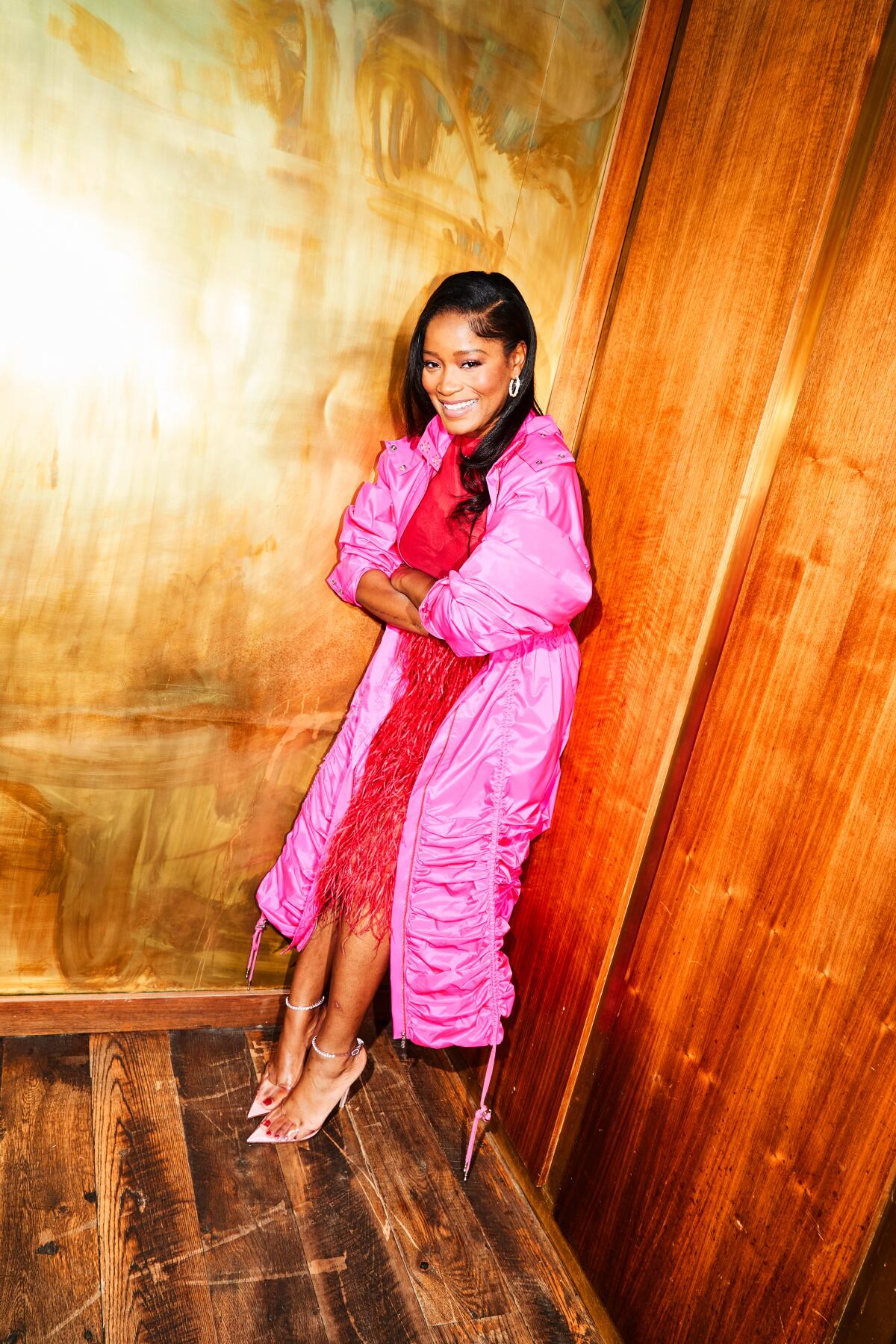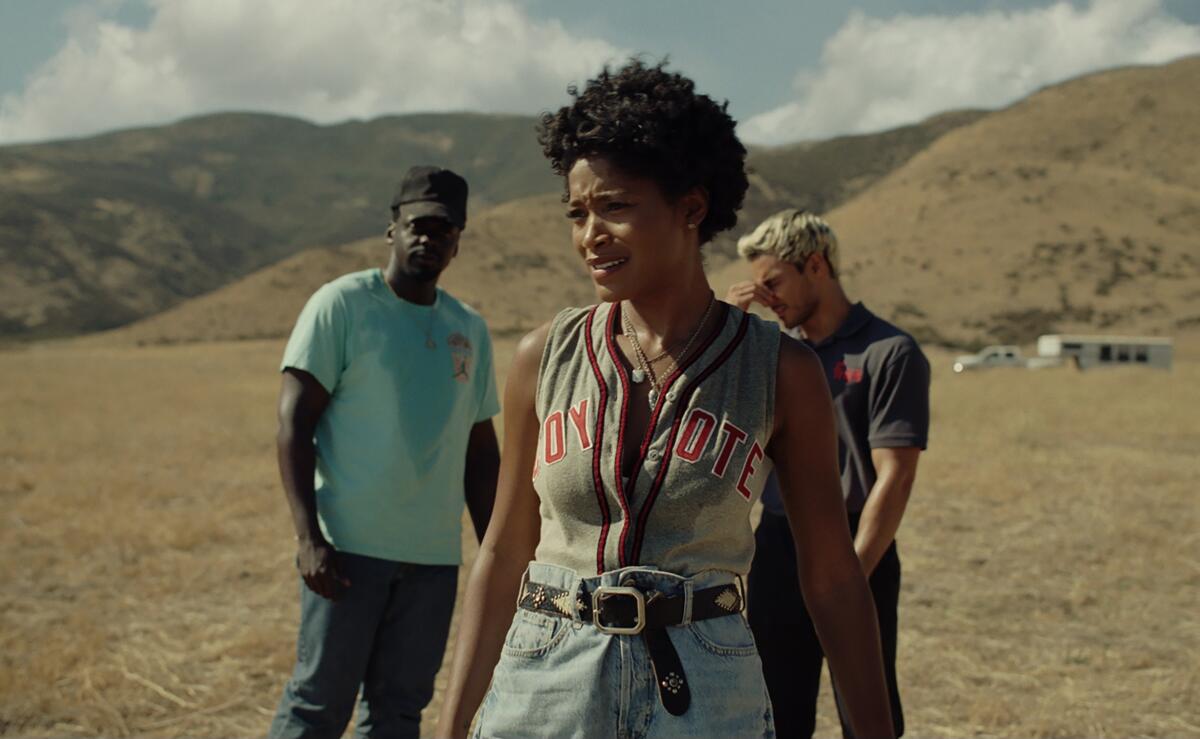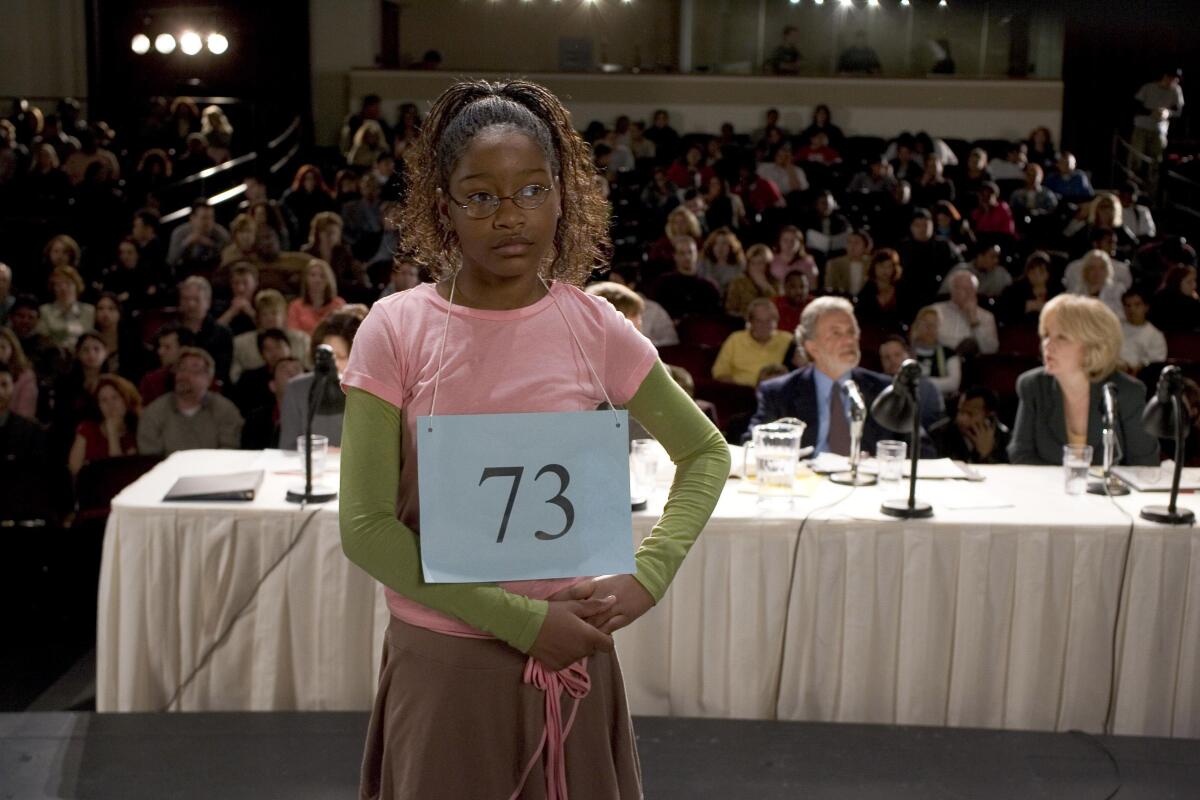The unique hodgepodge that is Keke Palmer

- Share via
Keke Palmer could teach a class on how to stay a rising star for two decades.
At age 29, she’s already a seasoned veteran. Since her breakthrough role in 2006’s “Akeelah and the Bee,” Palmer has become a multihyphenate machine whose endeavors in entertainment span movies, TV, Broadway, music, books, podcasts and the internet (as an unwitting viral star) — the list could go on, and if you know Palmer’s drive, it inevitably will. And now her dynamic turn in Jordan Peele’s social sci-fi thriller “Nope” has catapulted her to new heights in her journey.
In the film, she plays Emerald Haywood, the exuberant sister of Daniel Kaluuya’s more contemplative character, OJ. When the siblings discover a threatening alien presence in the sky, they set out to capture it on camera.
For “The Envelope” podcast, Palmer spoke recently about being given the space to bridge her comedic and dramatic abilities, the shadow of young fame and how Dick Clark — yes, Dick Clark — factors into her career ambitions.
What about “Nope” felt new for you? In what ways did you see your capabilities in a new light?
I think being able to, first of all, have the space to explore on such a scale with someone that is obviously as gifted and talented as Jordan Peele was incredible, but then also still being able to reach a dramatic place and an emotional spot with Emerald that a character deemed as the comic relief doesn’t usually have. So I was happy about being able to kind of bridge these two archetypes of jester and orphan together to create Emerald.

I’m curious how the themes of the movie resonate with you, because “Nope” gives a unique commentary on the film industry, on Hollywood, especially as it relates to tokenism and the desire to feel seen. You started in the industry at such a young age. How has the idea of feeling seen evolved for you?
There is something very meta about the way this film was cast. It’s interesting, the storyline of Steven Yeun [who plays Jupe, a former child star-turned-amusement attraction owner] and then the storyline of my character and the fact that I’m also a child actor playing this character. I feel so similarly about how I’ve been able to not allow the industry to define me and to tear me apart, essentially. Coming from being a child entertainer and thinking that there was one way that I had to be to survive or be validated, to then realizing that nothing validates me as an entertainer but me entertaining. It’s not how many people are watching me. It’s not who’s watching me. It’s not what awards I’ve received. It’s not the popularity I have, or the trends I’m catching or starting. It’s about the fact that I’m just literally, genuinely an artist.
I think, ultimately, what I took from it was just that being seen in our generation, and definitely for me personally, has been based off of so many things that are not real. And the only thing that really is real in our lives or the only true people that really see us are the ones that have always been there from the beginning, the ones that have always loved us, cared for us, acknowledged us; it’s the ones that sometimes we take for granted.
Was there a time where your childhood years as an actor were annoying, where you were trying to get out of that shadow? And what have you come to appreciate about that time?
I remember there was something that people were saying when I came out in Time [magazine] and [the headline] said, “Rising star.” And that offended some people that they said “rising star,” and I’m like, “Well, s—, I don’t wanna be at my destination, you know?” If after 20 years I’m still considered a rising star, well, where the hell y’all see me going? If I’m still continuously rising, I’m about to be at the god— stratosphere. I don’t know if I hated the shadow of it. I think I was always proud of the work I did as a kid. I think what I hated was that people thought it should end there. Child actors are so often seen as has-beens, especially ones that have reached any type of major success. Once that chapter is over, people are like, “Oh, I remember when...” And it’s like, I’m only 18 years old. Even now I still don’t feel like I’ve reached the best chapters of my life. I’m approaching 30 in 2023, and this still is just the beginning for me.

If your performance in “Nope” is a turning point in your career, what does the next half look like to you?
I’m hoping it’s a hodgepodge between Dick Clark, Oprah Winfrey and Ron Howard/Jordan Peele. That’s what I’m hoping. I’m hoping that there is some ownerships, some creating spaces for the next generation, some cool, fun original IP, as well as being able to be a host and have fun. Bring fun shows, games, things, to the forefront. I’m just in the middle of everything, and that’s why I have to bring so many names together to kind of say who I am, because I really am a unique hodgepodge of a lot of the things that I admire.
More to Read
From the Oscars to the Emmys.
Get the Envelope newsletter for exclusive awards season coverage, behind-the-scenes stories from the Envelope podcast and columnist Glenn Whipp’s must-read analysis.
You may occasionally receive promotional content from the Los Angeles Times.









